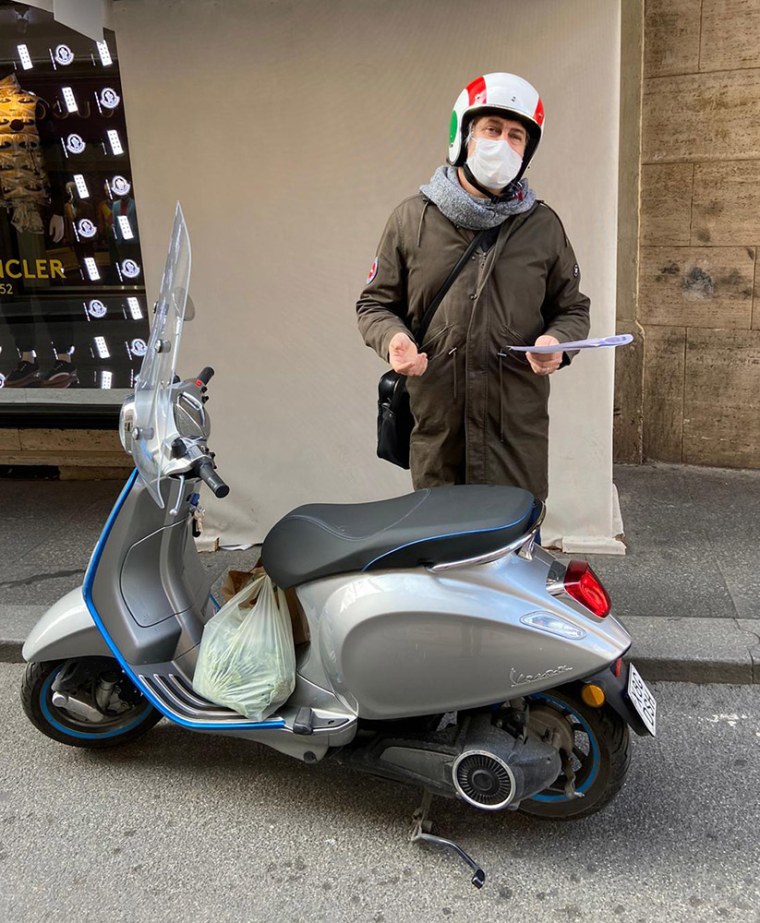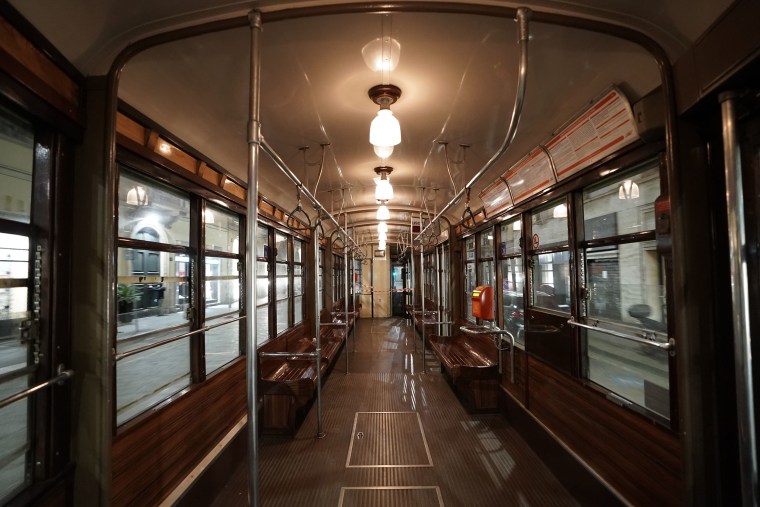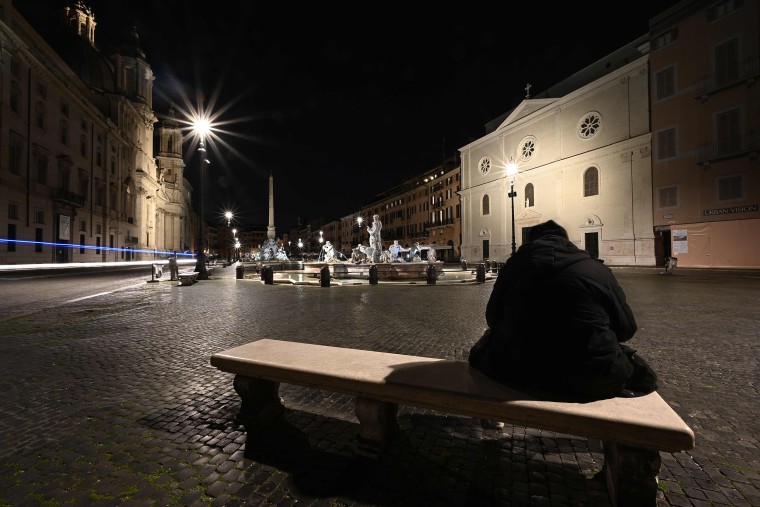ROME — The local chef did not expect police to swoop in when he paused to take a picture of this city's renowned Spanish Steps, which for once were free of hordes of tourists as a result of Italy's sweeping coronavirus lockdown.
But officers handed Andrea Misseri a fine of between 60 and 80 euros (around $70 to $90) because he didn’t have the correct permission to leave his home.

“The fine now can happen if you're going anywhere without any reason, so at the moment it’s like a curfew,” he told NBC News right after the incident on Thursday. “It’s too strict.”
Italians throughout this country of 60 million are coming to terms with the new reality that has been imposed by the nationwide restrictions on movement aimed at slowing the spread of the deadly disease.
The mood on the streets of Italy's capital was uncertain, where people remain unsure as to how they will cope stuck at home for days-on-end and with many anxious about their next paycheck.
Misseri, for one, does not think Italians will cope well with social isolation.
“More than two weeks, they can’t handle,” he said, adding that those who did not work for the government or big corporations were particularly concerned about what would happen to their jobs and pay.
The coronavirus has already affected the Italian economy, which saw stocks slide almost 17 percent on Thursday the biggest one-day loss in value on record. The Italian government was due to approve Friday a plan of how it will spend the first package of around $13.5 billion out of $28 billion set aside to tackle the economic impact of the virus on Wednesday.
On Thursday, Italy’s President Sergio Mattarella called for “solidarity” during the crisis and “not moves that may hinder its action” after the European Central Bank disappointed markets with its measures to contain the fallout from the outbreak.

“Italy is going through a difficult situation, our experience with the outbreak of the coronavirus will probably be useful for all European countries,” he said.
Meanwhile, some Italian factory workers went on strike Thursday demanding that their factories be closed until March 22 because of the virus. Three unions representing metalworkers issued a joint statement saying factories should be cleaned and reorganized to make sure they are safe, adding that workers were “quite rightly scared,” according to ANSA, an Italian news wire service.
But some are also trying to keep positive.
Hand-painted banners adorned with the slogan "everything will be alright" have begun appearing in different Italian cities. And back at home, those stuck in their apartments across the country are learning to adjust to the new rhythm of life cooped up at home.
In Milan, writer Andrea Ballocchi, 50, and his wife Grazia are trying to instill a sense of normality for their children who are following their school lessons via Skype.
“We try to keep a normal rhythm and to let children respect regular timetables otherwise they feel they are on holiday,” said Ballocchi by telephone.
“We are resisting,” he said.
Matt Bradley, Bill O'Reilly, Lidia Sirna and Claudio Lavanga reported from Rome; Michele Novaga from Milan; and Saphora Smith Caroline Radnofsky.

